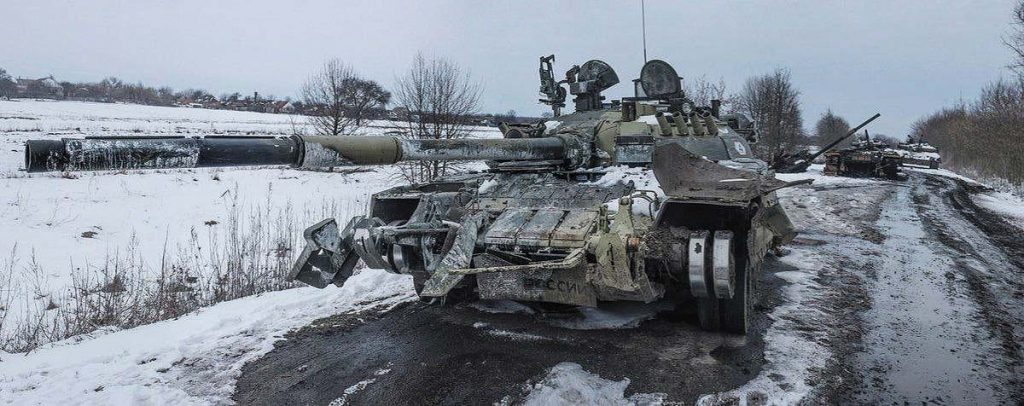(Editor’s note: The following article was written in a fluid situation and contains information that was current as of 6 p.m. Kyiv time on March 9.) WARSAW – Russia has resorted to wholesale bombing and shelling of civilian areas – including a maternity ward – as Moscow’s invading forces face heroic resistance from a...
 Ukraine Weapons Tracker
Ukraine Weapons Tracker
Damaged Russian T-80U tanks sit near Sumy along the same road where three more destroyed tanks have been seen in the city located northeast of Kyiv.
